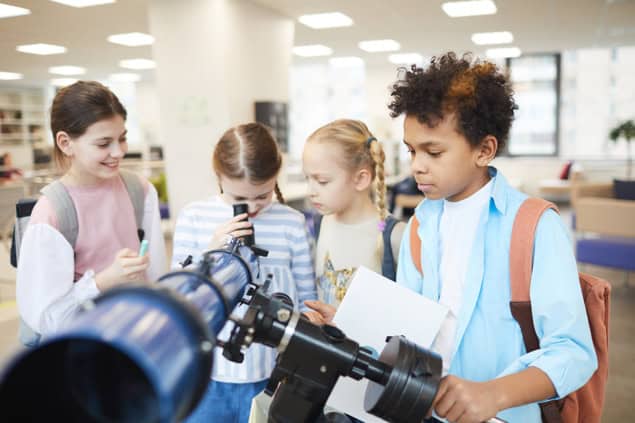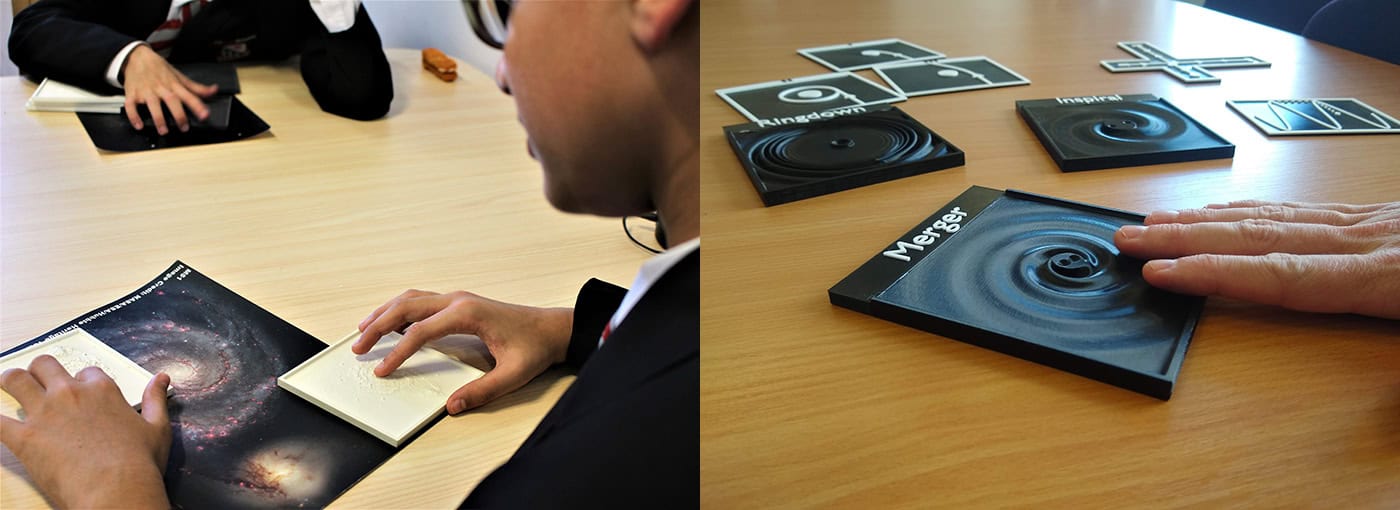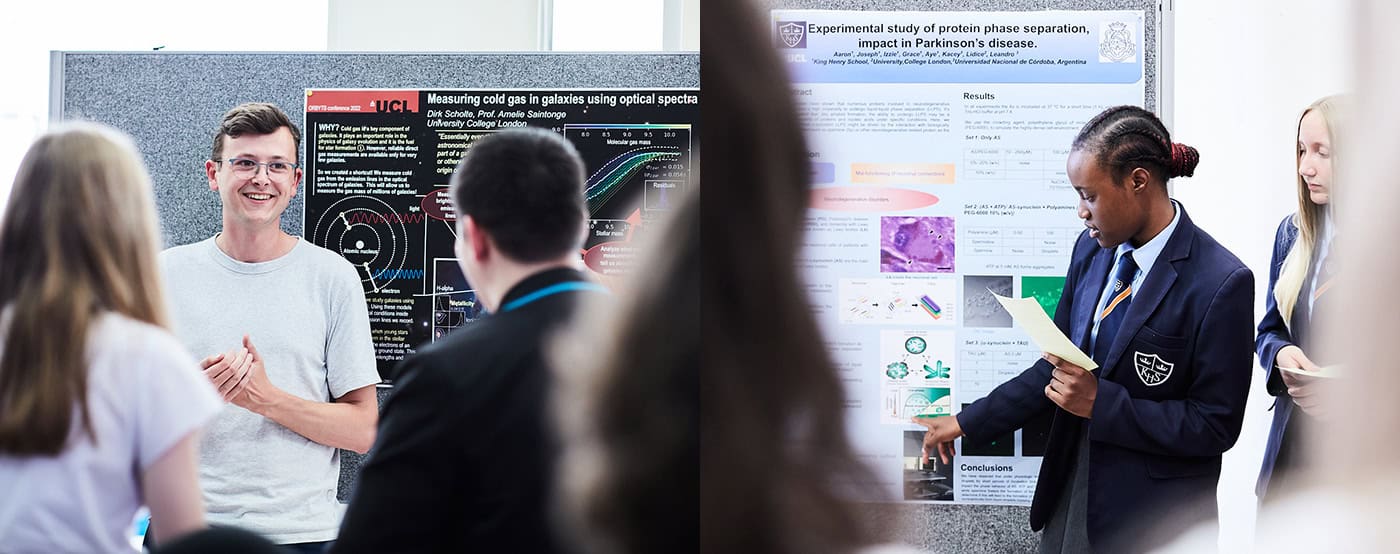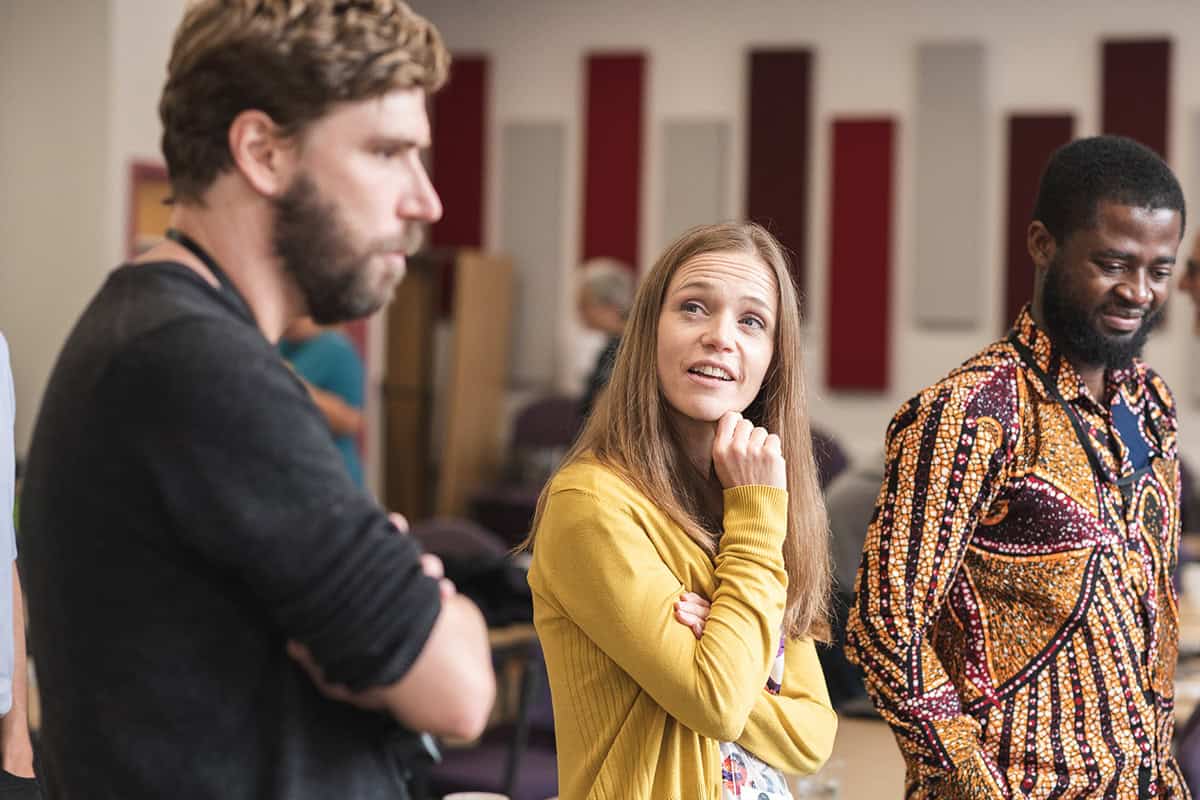Physics outreach builds vital links between scientists and the public, but it can be hard to know where to start. In this demystifying guide, Melanie Gardner and Clare Harvey from The Ogden Trust explain how to plan and deliver effective outreach activities within your available time and resources

Physics takes us from the far reaches of the universe to the subatomic scale. A passion for physics also takes us further than we imagined possible, building skills that set us up for life, no matter what path we follow in our careers.
If you’re a physicist or physics professional, your drive for the subject is invaluable. By sharing your passion, you show others how far physics could take them. It can be intimidating, but outreach is vital for nurturing the next generation of physicists, promoting public understanding of science and building a skilled physics community.
Outreach is also an important part of the mission of The Ogden Trust – a UK-based charitable organization that promotes the teaching and learning of physics. The trust has been supporting university physics outreach since 2005, with nearly all universities in England that offer physics undergraduate degrees – and several in Scotland and Wales too – having worked with the trust.
As well as providing funding for public engagement and outreach initiatives, the trust also supports universities through the Outreach Officer Network and annual Outreach Awards. So as a physicist, how can you get involved in outreach? Here are some tips and case studies to inspire you along your journey.
Starting out strong
Just as collaboration and shared tools are vital for physics research, there is also a wealth of support that physicists interested in outreach can draw on. No matter how ambitious your idea is, remember that others have been in your position before. Accessing shared resources and training will make starting out much easier (see box on the Physics Mentoring Project).
You could begin by signing up for The Interact Symposium, a biennial event for physical scientists seeking to gain new skills and share their experiences of public engagement. Run by the Science and Technology Facilities Council (STFC), the Institute of Physics (IOP), The Ogden Trust, the Royal Astronomical Society and the South East Physics Network (SEPnet), a bank of resources from the 2024 symposium is available online, including lots of examples of successful projects.
Meanwhile, many departments in universities, schools and workplaces have a specialist outreach co-ordinator whose experience you could tap into. If there isn’t, you might have a more experienced colleague who can advise you and share community or school links. You could also contact your local IOP branch committee or join the IOP’s Physics Communicators Group.
As with any scientific endeavour, it’s important to do your research. Attending local science festivals and community events will give you great ideas and inspiration. One day, they may even provide an opportunity to deliver your own outreach.
The Physics Mentoring Project
Set up in 2019, the Physics Mentoring Project is a collaboration across Wales – led by Cardiff University – that mentors school students, encouraging them to continue studying physics. It has so far delivered more than 7000 hours of mentoring in 36% of all secondary schools in the country.
Students at any of the eight participating universities who have a post-16 qualification in a physical science can sign up as a mentor. All receive a weekend of intense interactive training that covers mentoring theory, relationship building, and session planning, as well as safeguarding and health and safety.
Now in its seventh year, the project has developed into an active network. Mentors have access to an online community with peers and the project team. There are also “lead mentors” who give extra support to a small group of mentors (both new and experienced).
“[My] confidence in public speaking and the confidence in articulating points has come on leaps and bounds,” reported one mentor on the project. “Mentoring helped me understand a bit more about what teaching will be like,” added another.
Originally aimed at 15 and 16-year-olds, the project also mentors 17–18-year-olds doing A-levels and focuses on alternative routes into physics. Optionally, mentors can even take a Level 4 Unit in Increasing Engagement with Physics Through Mentoring, accredited by Agored Cymru as part of the Credit and Qualifications Framework for Wales.
The Physics Mentoring Project won an Ogden Outreach Award in 2022 for “supporting undergraduate ambassadors”.
Strategic thinking
So, you’ve tried outreach for the first time and are eager to do more. It’s tempting to jump straight in. But before making any big commitments, it is worth making a long-term strategic plan.
Your department might have an engagement-specific strategy or other priorities that could be linked to your activities. If there is a dedicated outreach or public engagement professional in your organization, they can advise on this. If your workplace doesn’t have a strategy for outreach and engagement, you could advocate for one to be written (see box on the Institute of Cosmology and Gravitation, University of Portsmouth, UK).
In the UK, the quality of research in higher-education institutions is assessed by the Research Excellence Framework (REF), the results of which informs research funding allocations. Part of the exercise considers the impact of research on people, culture and environment. In REF 2021 around half the impact case studies submitted featured outreach and engagement activities.
In 2021 The Ogden Trust released the Taking a Strategic Approach to Outreach guide. In partnership with the STFC, the trust also funds an annual leadership training course for outreach and public engagement which equips academics and teaching staff with the skills to plan and deliver effective outreach.
The Institute of Cosmology and Gravitation

In 2017 the Institute of Cosmology and Gravitation (ICG) at the University of Portsmouth, UK, introduced an outreach and public engagement strategy, which has since guided significant changes in Portsmouth. The strategy was a short, easy-to-use resource, intended as a working document that could be updated if needed. It outlined outreach and engagement goals over a five-year period, with budget and staffing allocated accordingly.
A crucial part of the process involved consulting people across the department, particularly the ICG directors and those doing innovation and impact work, as well as external supporters of the department’s outreach and public engagement.
Since the strategy was introduced, the department has created a new school outreach programme focusing on a small number of schools where the need for outreach is greatest. The ICG has also invested significantly in Tactile Universe, a project that engages visually impaired school pupils with astronomy research (see pictures).
Thanks to this new approach, outreach and public engagement have become firmly embedded in the ICG. An updated OPE strategy was introduced in 2022.
At this point, you should also consider whether you have all the resources you need. It is often possible to deliver activities with equipment from your institution but, as you do more, the cost of travel, time and equipment can add up. You may be able to fund activities from your existing budgets, particularly if they are closely related to your work. However, you may also need to consider external funding opportunities.
Engagement funding is available through a number of organizations. For example, the STFC has created the Spark awards (£1000–15,000), Nucleus awards (£15,000–125,000) and other grants to engage the public with STFC science. The IOP public-engagement grant scheme awards £500-4000 to improve young people’s relationship with physics. The Royal Academy of Engineering, meanwhile, has its Ingenious grant scheme, which offers funding of £3000–30,000 for projects that engage under-represented audiences.
Remember that while one-off outreach activities can spark your audience’s interest, building long-term partnerships is often more effective. Outreach work with schools is ideally suited for this kind of approach – in fact, regular interactions with a school can tackle systemic inequalities in UK STEM education (see box on Orbyts).
Orbyts

Orbyts links university researchers with pupils in some of the most deprived areas of the UK, empowering them to do original research. Projects last a minimum of five months and involve regular meetings between pupils and researchers. Orbyts projects currently run in three universities across England and received funding from The Ogden Trust to scale their approach.
So far, Orbyts has created over 100 partnerships between researchers and schools, enabling more than 1500 school students to undertake research projects. Topics have included life in the universe, black holes, quantum computing and cancer. Here are some comments from those involved.
“In a tough year with significant professional challenges to overcome, this has been a real “get me out of bed in the morning” kind of project.”
Orbyts partner teacher
“The high-level provision offered by the Orbyts researchers raised enthusiasm and interest in STEM disciplines among our students. The researchers introduced our students to Python programming, as well as analysis and interpretation techniques of large data sets, skills that are of fundamental importance at research level in all areas of physics and STEM. Several of the female students taking part in Orbyts decided to apply to physics at university. They were inspired by the content and the overall experience, as well as by the high-calibre female researchers from Orbyts who visited our school every week for several months and acted as role models for them. Most of the students who took part in 2021/22 are now studying physics, engineering or material science at universities. Their participation in Orbyts was pivotal in making informed decisions about their academic future.”
Physics and maths teacher, Newham Collegiate Sixth Form, UK
“I’ve been fortunate enough to have been a part of Orbyts for the last two years. It has helped me gain invaluable skills and develop as a researcher in more ways than I ever expected. Orbyts has enabled me to gain confidence and ownership in my research, as well as providing opportunities to project manage and improve my public speaking and teaching skills in a proactive yet fun way. Working with students on an Orbyts project has been one of the most rewarding experiences of my research career. It has been incredible to see the students become more confident in their work and become enthusiastic researchers themselves across the short 14-week programme.”
Shannon Killey, space physics PhD student, Northumbria University
You should also think about your target audience. A lot of physics engagement takes place in schools but partnerships with community organizations can reach those who may not attend science festivals or talks. There may be an increased willingness to engage in physics outside of the classroom, where it can capture the imagination of young people who find a school environment challenging (see box on My Place, My Science).
My Place, My Science
My Place, My Science is an initiative to support young people of African and Black Caribbean heritage in the UK to enjoy science and build cultural connections. It is a partnership between the physics, rheumatology and biochemistry departments at the University of Oxford, the History of Science Museum and the community organization African Families in the UK (AFiUK).
Launched in 2023, My Place, My Science has delivered a programme of activities where participants learn about topics including stargazing, magnets and sickle cell disease. It was also the winner of the Ogden Outreach Award for Engaging Communities in 2024.
“AFiUK has a deep understanding of local needs, priorities, and challenges,” says Sian Tedaldi, outreach programmes manager in Oxford’s physics department. “This understanding continues to shape and inform the development of the project. They have provided a familiar and trusted organization for participants, leading to greater participation and impact.”
“I have developed a toolkit of interactive activities to engage audiences with planetary research. I have been able to reach thousands of young people, families and adults through my work and have engaged with traditionally under-represented groups within physics, such as girls and children from disadvantaged backgrounds. I love talking to young people about space and the opportunity to speak with the enthusiastic and curious AFiUK community has been incredibly rewarding.”
Katherine Shirley, planetary-physics postdoc at the University of Oxford
Steps to success
As with any activity in which you are investing your time and energy, it is important to know whether you are achieving your outreach goals. Having a clear strategy will give you a clear idea of what success looks like, but effective evaluation should also be built into your project from the start.
This will also be valuable if you have to justify the time and money spent on a project or make funding applications. The STFC has a useful public engagement evaluation framework that you can follow. The Ogden Trust has also published an evaluation toolkit for working with young people that uses the science capital framework.
Bear in mind that evaluation doesn’t always mean surveys and quantitative data. You might instead get verbal feedback from participants or ask someone else to observe you. In a university, you could consult colleagues in education or social-science departments who are familiar with such methodologies. For larger projects or those for REF or business cases, you could turn to an external evaluator to provide an independent perspective.

Physicists know that their subject impacts everything from space exploration to sustainable technology, but unfortunately many people don’t think physics is for them. Young people from disadvantaged backgrounds, in particular, struggle to see themselves as future physicists. Outreach can make a real difference by showing that you don’t need to belong to a specific group or demographic to be a physicist – all you need is a passion for the subject.
- For more information about The Ogden Trust or to sign up for its Physics Outreach Network newsletter, visit its website or e-mail outreach@ogdentrust.com.



